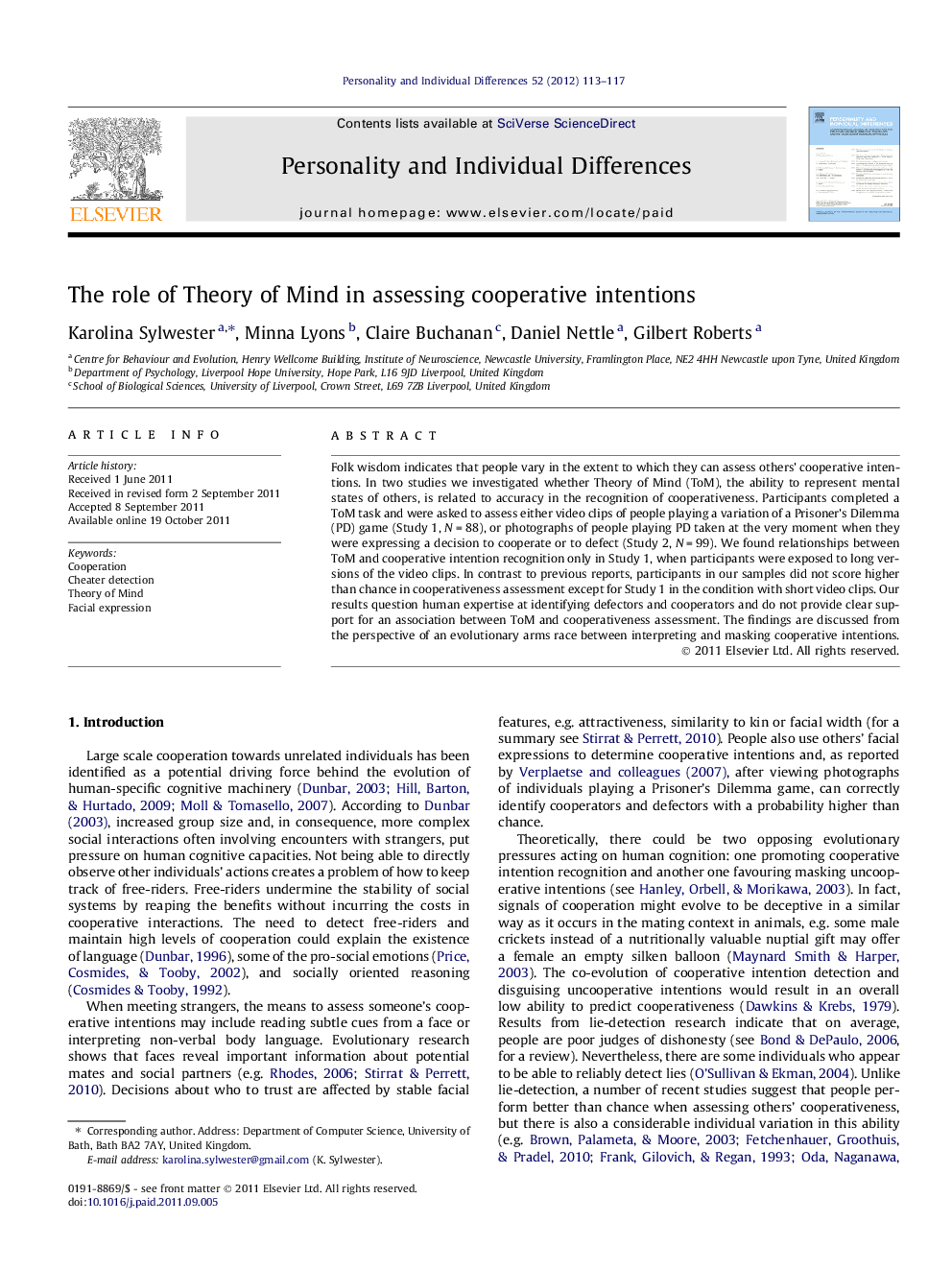| Article ID | Journal | Published Year | Pages | File Type |
|---|---|---|---|---|
| 891200 | Personality and Individual Differences | 2012 | 5 Pages |
Folk wisdom indicates that people vary in the extent to which they can assess others’ cooperative intentions. In two studies we investigated whether Theory of Mind (ToM), the ability to represent mental states of others, is related to accuracy in the recognition of cooperativeness. Participants completed a ToM task and were asked to assess either video clips of people playing a variation of a Prisoner’s Dilemma (PD) game (Study 1, N = 88), or photographs of people playing PD taken at the very moment when they were expressing a decision to cooperate or to defect (Study 2, N = 99). We found relationships between ToM and cooperative intention recognition only in Study 1, when participants were exposed to long versions of the video clips. In contrast to previous reports, participants in our samples did not score higher than chance in cooperativeness assessment except for Study 1 in the condition with short video clips. Our results question human expertise at identifying defectors and cooperators and do not provide clear support for an association between ToM and cooperativeness assessment. The findings are discussed from the perspective of an evolutionary arms race between interpreting and masking cooperative intentions.
► We examine cooperative intention recognition and its link with Theory of Mind skills. ► Participants perform poorly at recognising cooperative intentions. ► Lack of support for a link between Theory of Mind and cooperativeness recognition.
